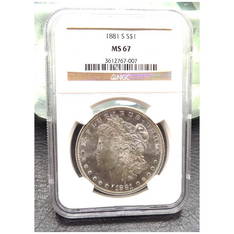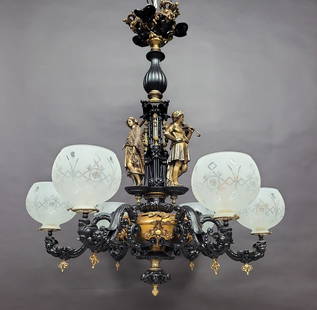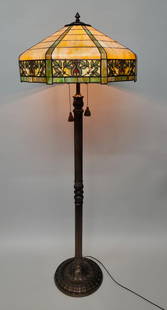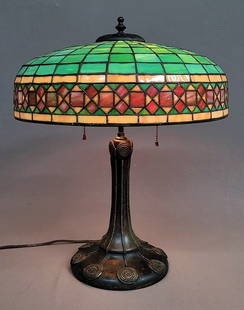
Two Pencils made by Henry David Thoreau
Similar Sale History
View More Items in Tableware & BarwareRelated Tableware & Barware
More Items in Tableware & Barware
View MoreRecommended Home & Décor
View More







Item Details
Description
Two Pencils made by Henry David Thoreau, one length 6 1/2 inches, marked "J. Thoreau & Son, Concord, Mass, 3", the other pencil length 6 1/2, marked "J. Thoreau & Son, Concord, Mass, 1." From the estate of Alexander Bullock, Governor of Massachusetts. It is believed that Alexander Bullock probably attended the palor lecures of Thoreau in Worcester. There are only a few examples known to have this mark in the Concord Museum Collection. (Note: Alexander Bullock graduated Amerherst College in 1836 and entered Harvard Law School. He worked for the law firm of Emory Washburn in Worcester, Massachsetts. He was in the Massachusetts House of Representatives and a State Senator. He was mayor of Worcester in 1859. He was elected Governor of Massachusetts from 1866-1868. He was also president of State Mutual Life Insurance Company and the Worcester County Institute for Savings. He was also a writer for the Aegis newspaper. There are business connections between the paper companies of Fitchburg, Massachusetts and the William Mason train works that had also produced machinery for the paper mills. It is possible the Bullock's either through the insurance business and/or banking businesses had interests in the trains that William Mason produced and Alexander Bullock's cousins were in the railroad and banking business in various states including Ohio that may have supported Abraham Lincoln with campaign funds and trains. It is interesting to note that in Henry Petroski's Book "The Pencil" that the best source for the type of clay Thoreau needed for pencil making was located in Tauton, Massachusetts at the Phoenix Crucible Company. This book provides an excellent reference concerning Henry David Thoreau's involvement with his father's company for the two years that he worked for it. Most known example of pencils in existence are marked J. Thoreau & Co. whereas these are marked J. Thoreau & Son indicating his involvement with the company.
Biography of Henry David Thoreau:
David Henry Thoreau was born in Concord, Massachusetts, of John and Cynthia Thoreau. He was named after a recently deceased paternal Uncle, David Thoreau. He didn't change his name to "Henry David" until he had graduated from Harvard, although he never petitioned the government to do so officially. He had two older siblings, Helen and John Jr., and a younger sister, Sophia.
Bronson Alcott notes in his journal that Thoreau pronounced his family name THOR-eau, stress on the first syllable, not the last, a common error today. A Concord variant is THUR-eau, like the English word "thorough." In appearance he was homely, with a nose that he called "my most prominent feature".[Cape Cod] Of his face, Nathaniel Hawthorne wrote: "[Thoreau] is as ugly as sin, long-nosed, queer-mouthed, and with uncouth and rustic, though courteous manners, corresponding very well with such an exterior. But his ugliness is of an honest and agreeable fashion, and becomes him much better than beauty."
Thoreau studied at Harvard between 1833 and 1837, majoring in English. Legends state that Thoreau refused to pay a five-dollar fee for a Harvard diploma. In fact, the Masters' degree he declined to purchase had no academic merit: Harvard College offered it to graduates "who proved their physical worth by being alive three years after graduating, and their saving, earning, or inheriting quality or condition by having Five Dollars to give the college." (Thoreau's Diploma) His comment was Let every sheep keep its own skin.
Upon graduation, he returned home, where he became a companion of Ralph Waldo Emerson. Emerson took a strong paternal, and sometimes patronizing liking to Thoreau, and delighted advising the young man and introducing him into his social circle, which consisted of some of the most important American writers and thinkers of the period including Ellery Channing, Margaret Fuller, Bronson Alcott, and Nathaniel Hawthorne and his son Julian (at that time only a boy). Of the many esteemed authors who made their home at Concord, he was the only town native. Emerson referred to him as THE man of Concord.
Emerson constantly pushed Thoreau to contribute essays and poems to the transcendentalist magazine, The Dial, but editor Margaret Fuller consented to publish Thoreau's work only after pressure from Emerson. His first work to garner any praise was Natural History of Massachusetts half book review, half natural history essay published in The Dial in 1842. Like most of his works, the essay was mostly made up of observations Thoreau had made in his journal. Thoreau had begun keeping a journal in 1837 at Emerson's suggestion. His first entry on October 22, 1837 reads, "'What are you doing now?' he [Emerson] asked. 'Do you keep a journal?' So I make my first entry today."
Thoreau was a philosopher of nature and its relation to the human condition. In his early years, he accepted the ideas of Transcendentalism, an eclectic idealist philosophy advocated by Ralph Waldo Emerson, Margaret Fuller, and Bronson Alcott. Transcendentalism was naturalistic and mystical, rejecting deterministic Calvinism. It was inspired by Swedenborg, Kant, Buddhism, Hinduism, and other non-Christian sources. It was not atheistic, but Unitarian and thus did not see Jesus as divine.
Thoreau worked in his father's pencil workshop in 1837-1838. He and his brother John opened a Grammar School in Concord in 1838, teaching there until John became fatally ill in 1841. In 1841 he was invited to live in the Emerson household, where he lived sporadically until 1843 working as an all-around handyman, gardener, and assistant to Emerson. He spent a few months of 1843 in New York, serving as a tutor to William Emerson's sons, and attempting to break into the New York publishing industry. (Source: From Wikipedia, the free encyclopedia)
Buyer's Premium
- 20%
Two Pencils made by Henry David Thoreau
Estimate $1,000 - $1,500
1 bidder is watching this item.
Shipping & Pickup Options
Item located in Lunenburg, MA, usSee Policy for Shipping
Payment

TOP













































































